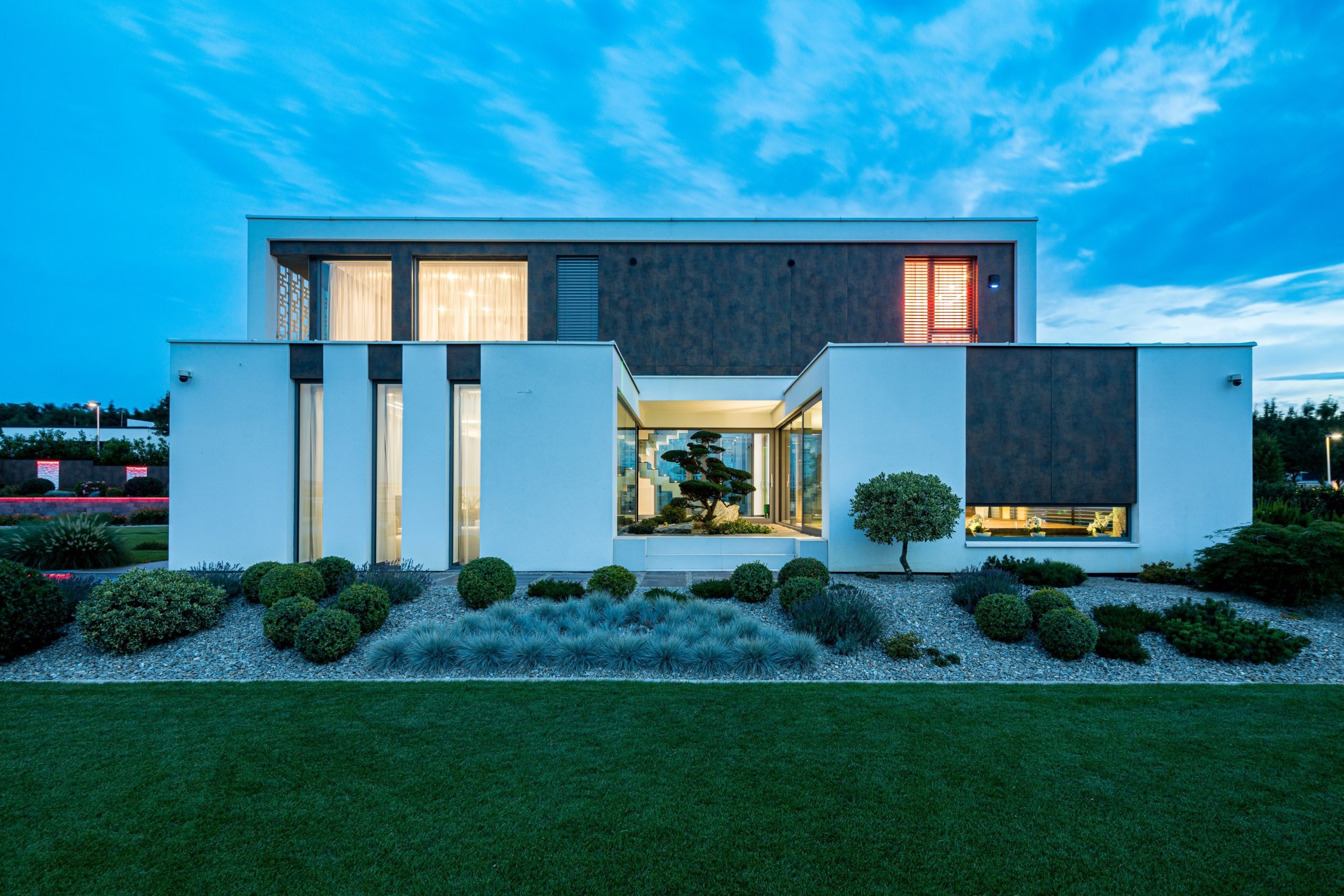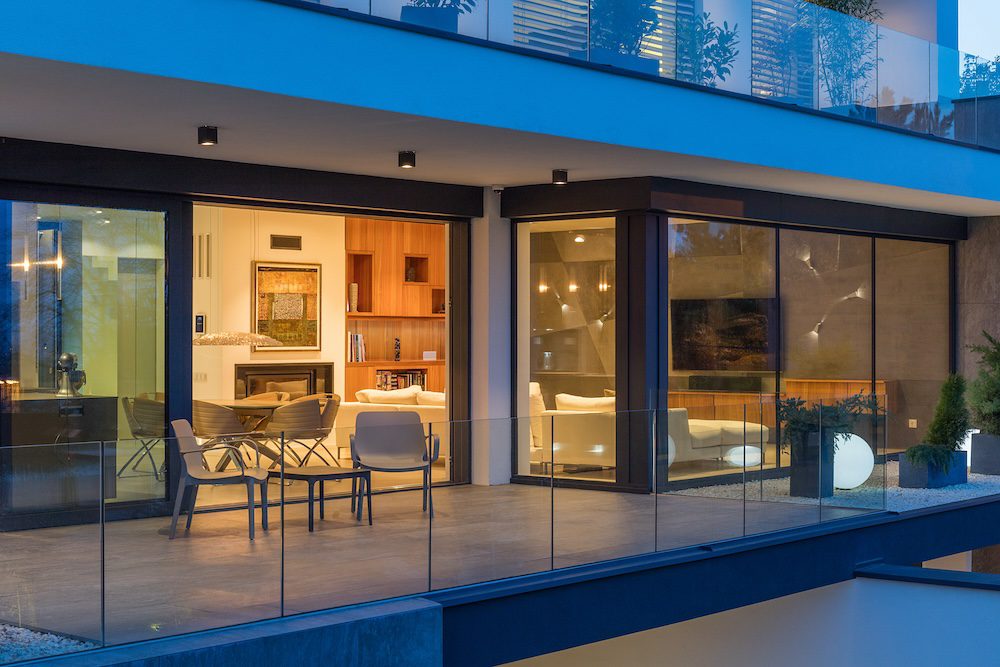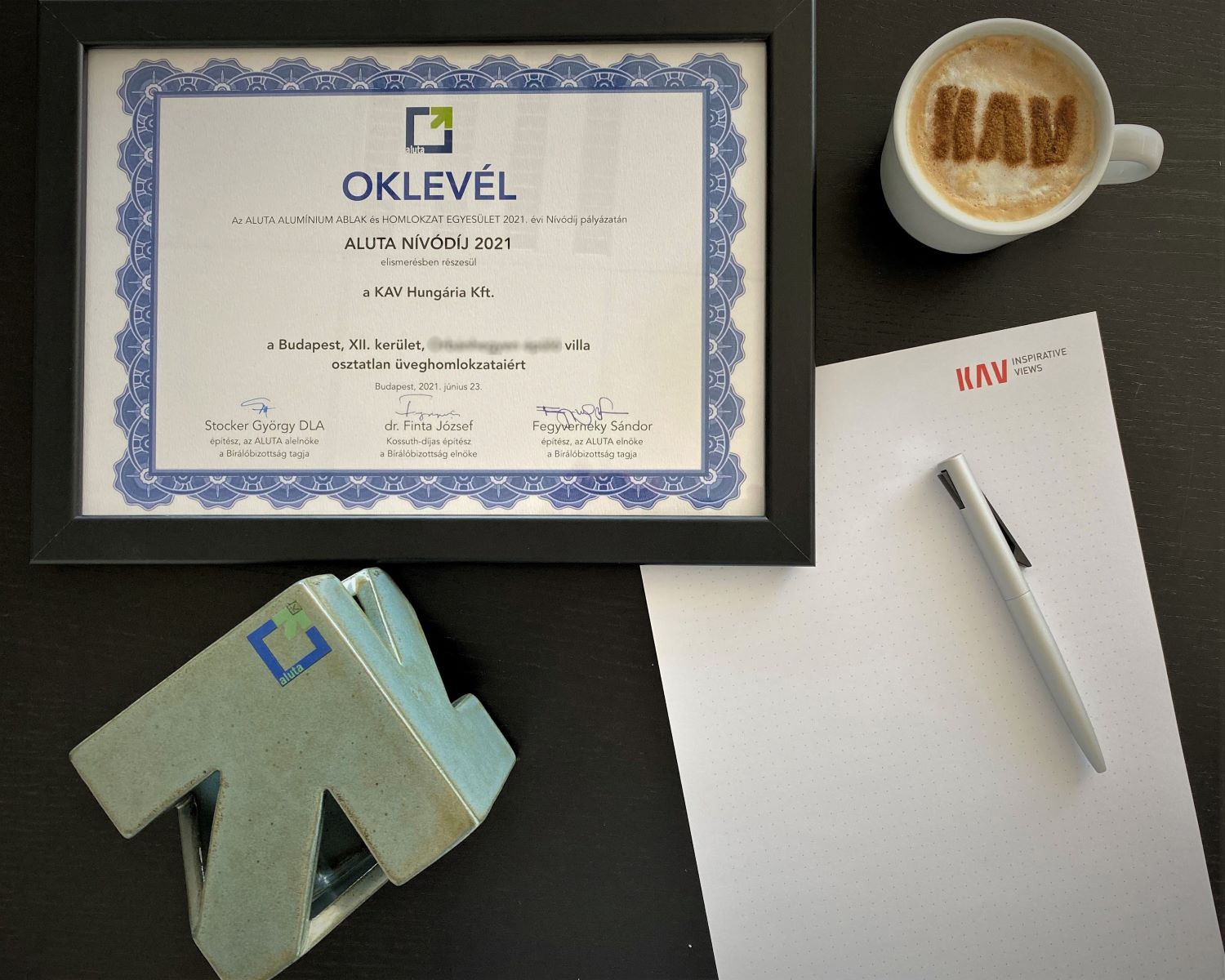THE MARKET SHARE OF ALUMINIUM WINDOWS AND DOORS IS CONTINUOUSLY INCREASING IN RESIDENTIAL PROJECTS

The market share of aluminium and steel doors and windows in Hungary is constantly increasing with regard to single-family home projects as well. However, even in this stable market, the year 2021 introduced a number of unexpected situations: cancelled professional events, shortages of raw materials and supply chain disruptions. We spoke to Károly Eiles, the company’s investment and general contracting consultant, about the impressions with which Alukönigstahl Kft. (the distributor of Schüco and Jansen systems in Hungary) closed this challenging year.
– The BAU 2021 exhibition in Munich was cancelled. KAV staff really missed the foreign atmosphere, meeting professionals and seeing new products on display. How much did you feel its absence in terms of sales or partnerships?
It was indeed very strange that the professional and business new year didn’t start in Munich, as otherwise is usual in any odd-numbered calendar year. During the trade fair season, we launched i.NOW (Innovation Now), an online programme to inform our partners about what new things can be expected in the future, based on three main topics (Healthy Built Environment, Smart Construction and Safety in Buildings). Naturally, the epidemic situation hasn’t stopped developments at Schüco’s Bielefeld headquarters. Jansen’s new products were also presented via the online interface and webinars, including an international online event, broadcast from their headquarters in Switzerland. Instead of the technical inspirations to start the year, we very quickly found ourselves faced with increased market demands, with no time to mope. Unfortunately, the Covid period all ties in with the decline of personal contacts in all areas, with all the drawbacks that entails. I think that this phenomenon will have a greater impact on partner relations in the future, with digital channels available to resolve operational tasks quickly.
– There were also many problems in the supply chain and commodity production fronts in 2021 due to the pandemic. As a domestic market leader, how have you been able to serve your partners and with what results?
We’ve done all we can to serve our domestic partners better, but unfortunately we couldn’t decouple ourselves from the international processes. We’ve tried to inform our manufacturing partners in a transparent way about the difficulties in the supply chains, so that they can organise their work accordingly, in the most optimal way. We didn’t want to put them in an uncomfortable situation by making irresponsible promises. Towards the end of the year, we were already seeing an improving trend in this area.
Last year, KAV again opted for Schüco aluminium and Jansen steel raw materials for manufacturing doors and windows for a lot of its high-end single-family home orders. In the aluminium product range, the Schüco ASS 77 PD frameless and the ASE 80 sliding door system were the most frequently ordered products. How would you rate your performance in the premium products market?
First and foremost, thank you for your confidence. The premium products market has been growing continuously and steadily in our country for years. These sliding structures can be deployed in this segment well. Serving the premium market requires much more professionalism and being prepared to communicate; it’s where the latest innovations are introduced and almost every structure to be produced poses a separate challenge. The demands of designers and customers, in terms of dimensions and technical content, are the highest here, and it takes serious effort to keep up with expectations. We feel that there’s still room for further development in this area and, fortunately, Schüco also recognises the potential of the premium segment.
– What are your expectations for 2022 in municipal projects and premium residential sales? Will you be able to continue this upward trend, which is difficult for even the competition to sustain?
We’re confident that, after some stabilisation, we can look forward to another successful year for the Hungarian construction industry. Of course, there may be differences between the development percentage of the different project types, but the overall picture looks positive. Within residential construction, as I have already mentioned, the presence of the premium category seems to be the most predictable. Our domestic warehouse base, which has been expanded with the addition of a powder spraying plant, now serves not only as a logistics partner for the Hungarian market, but also for the neighbouring Alukönigstahl markets, which also provides security for our domestic customers.
– What advice would you give to architects who are now designing a family home? What trends should they look into and research?
Architects must also meet the needs of their clients. In the family home category, one can typically not talk about professional investors, and providing general building law, technical, economic and energy information for private clients is very resource-intensive. The recommendations of and consultation with a well-prepared technology partner can prevent many unnecessary rounds. At architect level, it’s impossible to know the details of all the technologies used, and it’s very important to have well prepared consultants. Careful consideration of issues related to energy, function and use is essential to ensure that clients are ultimately satisfied with the end result.
– Speaking of advice, what do you recommend for people building a family home? What should they look for when choosing, whether it’s basic materials or a door and window manufacturer?
It is definitely worth putting the choice and the decision into one’s own hands, even if it means extra work. Reliability, availability and a stable market presence are the most important factors. Every building project is a new, unique case; the chance of unexpected, unpleasant situations is coded into the system – even if the best possible designs are available. And let’s not forget that door and window structures are moving parts of the building, and may require maintenance and repair in the future. The budget obviously determines the framework’s material, but we’re seeing a steady increase in the share of aluminium windows in residential projects. In the case of large, filigree and transparent structures, the use of aluminium is almost unavoidable. In the context of climate change and energy efficiency, the issue of shading is becoming increasingly important alongside the issue of windows and doors, and it is worth considering this in conjunction with the windows and doors themselves, as they are inextricably linked, both physically and functionally. For this purpose, Alukönigstahl offers Warema systems, which cover almost all areas of shading.
MoreNews























